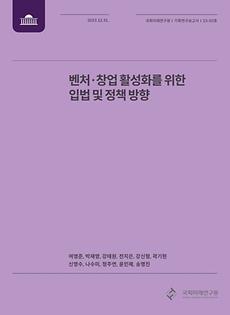
Historically, South Korea experienced rapid economic growth through effective technological learning, assimilating advanced technologies and knowledge with remarkable efficiency. However, the legacy of a government-led, catch-up strategy has introduced a degree of institutional rigidity, hindering the transformation and diversification of technological learning capabilities into a more dynamic innovation system. This study highlights concerns that current policies may be insufficient in fostering a vibrant innovation ecosystem and generating positive spillovers through diversity expansion.
As the Fourth Industrial Revolution and digital transformation accelerate, countries worldwide are engaging in comprehensive technological competition. Domestically, South Korea faces a growth stagnation trap, constrained by the limitations of its traditional growth model reliant on established corporations and industrial structures. Unquestionably, a structural overhaul towards securing future growth engines and fostering new industries is essential for South Korea's rise to global prominence. This necessitates a clear shift towards enhancing the venture and startup ecosystem.
Emerging as a leading nation in ventures and startups is increasingly recognized as a condition for success, given the global economic rivalries today. The government institutions, along with the National Assembly, are keen on pooling wisdom to support this transition. As part of these efforts, our research delves into the critical issues faced by ventures and startups at various stages of growth within the transitioning Korean economy. We propose legislative and policy tasks aimed at creating a healthy and dynamic ecosystem for ventures and startups.
To address these challenges, we systematically outline institutional limitations and policy issues inherent in Korea’s innovation and corporate support frameworks. Furthermore, we present government policy recommendations designed to address these challenges and support the transition towards an entrepreneurial economy. This study’s implications extend beyond specific industries or companies, advocating for a collective embrace of the entrepreneurial spirit and continuous evolutionary development among various stakeholders in Korea’s innovation system.